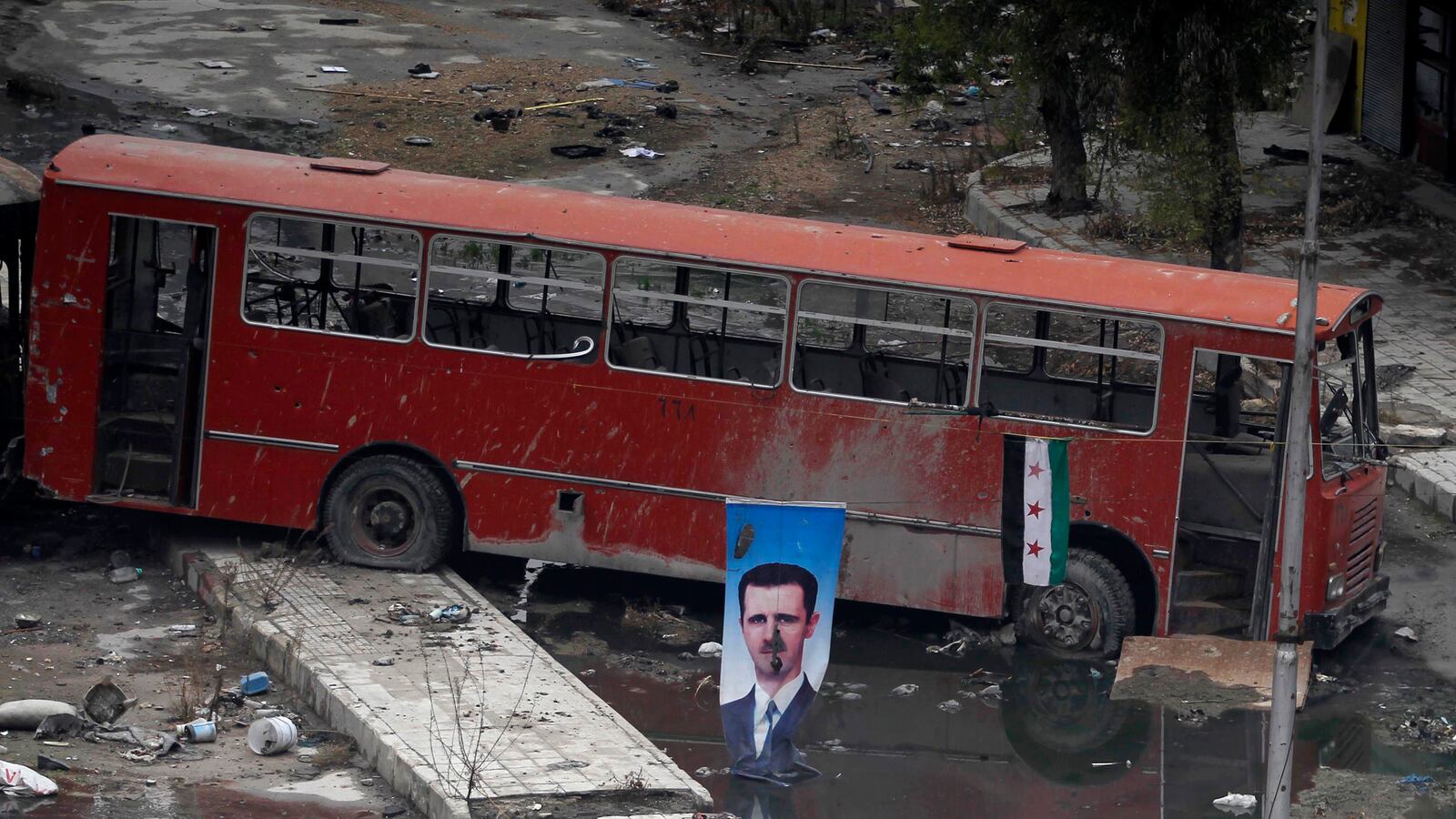
Syria’s death toll from the two-and-half year civil war that has wrought destruction across large swaths of the country and seen major towns razed has now reached 126,000 people, a third of them civilians, says a pro-opposition monitoring group.
The U.K.-based Syrian Observatory for Human Rights—which relies on a network of activists on the ground in Syria for information—also warned that its estimates are almost certainly below the real figure as both sides in the conflict are reluctant to report casualties sustained by fighters in their ranks.
“There are at least 40,000 more dead combatants, but they were not included in the toll because the cases were not documented well enough,” says Observatory director Rami Abdelrahman. The United Nations doesn’t provide regular updates on the war’s death toll, but for months U.N. officials have been saying that more than 100,000 have died in the conflict so far.
The Observatory’s latest casualty count came as the U.N.’s human rights chief for the first time accused Syrian President Bashar al-Assad of being implicated in war crimes, saying an inquiry had uncovered evidence indicating responsibility “at the highest level of government, including the head of state” for crimes against humanity.
Commissioner Navi Pillay said the U.N.’s commission of inquiry into Syria has produced “massive evidence...[of] very serious crimes.” She added: “The scale of viciousness of the abuses being perpetrated by elements on both sides almost defies belief.” Earlier this year, the U.N. panel monitoring human-rights abuses accused rebel militias of grave crimes but said the government was responsible for more abuses and that the regime appeared to be pursuing a systematic and purposeful policy of terror.
Pillay did not indicate whether the inquiry panel’s evidence against the highest levels of the Syrian government include the chemical warfare attacks unleashed in August on Damascus suburbs held by rebels.
Syria’s deputy foreign minister, Faisal Mekdad, dismissed Pillay’s war crime accusations, telling the Associated Press, “She has been talking nonsense for a long time and we don’t listen to her.” Pillay, who says U.N. investigators have compiled a list of government officials implicated in war crimes, has called on the U.N. Security Council in the past to refer human rights violations in Syria to the International Criminal Court at The Hague.
Later, Pillay clarified her remarks, saying: “Let me say that I have not said that a head of state is a suspect. I was quoting the fact-finding mission, which said that based on their facts, responsibility points at the highest level.”
But she added that accountability for war crimes should be made a priority ahead of Syrian peace talks set for January 22.
Syria is not a signatory to the treaty that set up the ICC, but the court would have legal authority to investigate war crimes if directed to do so by the Security Council—an unlikely move, as any vote on a referral almost certainly would be vetoed by Russia, an Assad ally.
But the war-crimes accusations being leveled against Assad and senior figures in the government are complicating the Obama administration’s efforts to persuade all parties in the conflict to participate in peace talks scheduled for next month in Geneva.
The Obama administration and rebel leaders say Assad can’t be allowed to remain in power. Russia says that should not be prejudged before talks.
The Western-backed Syrian National Coalition has been divided on whether to attend the talks. Claims of war crimes against Assad will make the task harder for opposition leaders to convince fighters on the ground that they have no choice but to participate under Western pressure.
Free Syrian Army commanders have said they will not observe a pause in fighting and will continue while the so-called Geneva II conference takes place—if it does.
Among the war crimes the panel has been investigating, say U.N. sources, are indiscriminate government artillery bombardments and air strikes on towns and villages. The latest series of those came over the weekend, when Syrian helicopters dropped so-called barrel bombs—explosive-filled oil barrels—on a market district in the town of al-Bab, northeast of the city of Aleppo, in an attack that killed at least 30 people, say residents. On Saturday another 26 civilians reportedly were killed in a barrel-bomb attack.
Rebels fighting in Aleppo have long used al-Bab as a holding area for both men and supplies. Recently, government shelling of the town has increased in tempo, in preparation, activists believe, for a renewed offensive on the eastern side of Aleppo. The shelling and aerial attacks, though, don’t appear to discriminate between military and civilians. “The attacks are targeting civilian neighborhoods,” says al-Bab activist Barry Abdul Latif.
One video of Sunday’s barrel-bomb attack uploaded to YouTube showed a child carrying a baby from where a barrel bomb had detonated, crushing houses and igniting a fire.
The indiscriminate attacks on civilians have prompted the Syrian Observatory to complain that the Western powers and U.N. are too focused on the destruction of Assad’s chemical weapons arsenal at the expense of the killing inflicted by conventional weaponry.
“They should not just be concerned with destroying chemical weapons when tens of thousands of Syrians have been killed by all kinds of weapons since the poison gas attacks of Damascus,” says the Observatory’s Abdelrahman.
In all, the Observatory says it has documented 125,835 casualties since the start of the rebellion on March 18, 2011. The Observatory’s toll includes 44,381 civilians. Of those, 6,627 were children and 4,454 were women. Rebel fighters killed are estimated at 19,264 and Syrian government soldiers slain at 31,174. The Observatory believes a further 19,256 pro-regime militiamen have been killed.
The Observatory has been able to document the deaths of 232 fighters from the Lebanese Shia movement Hezbollah, which has been fighting in support of its close ally Assad. Non-Syrian fighters on the rebel side killed are estimated at 6,261, says the Observatory.





